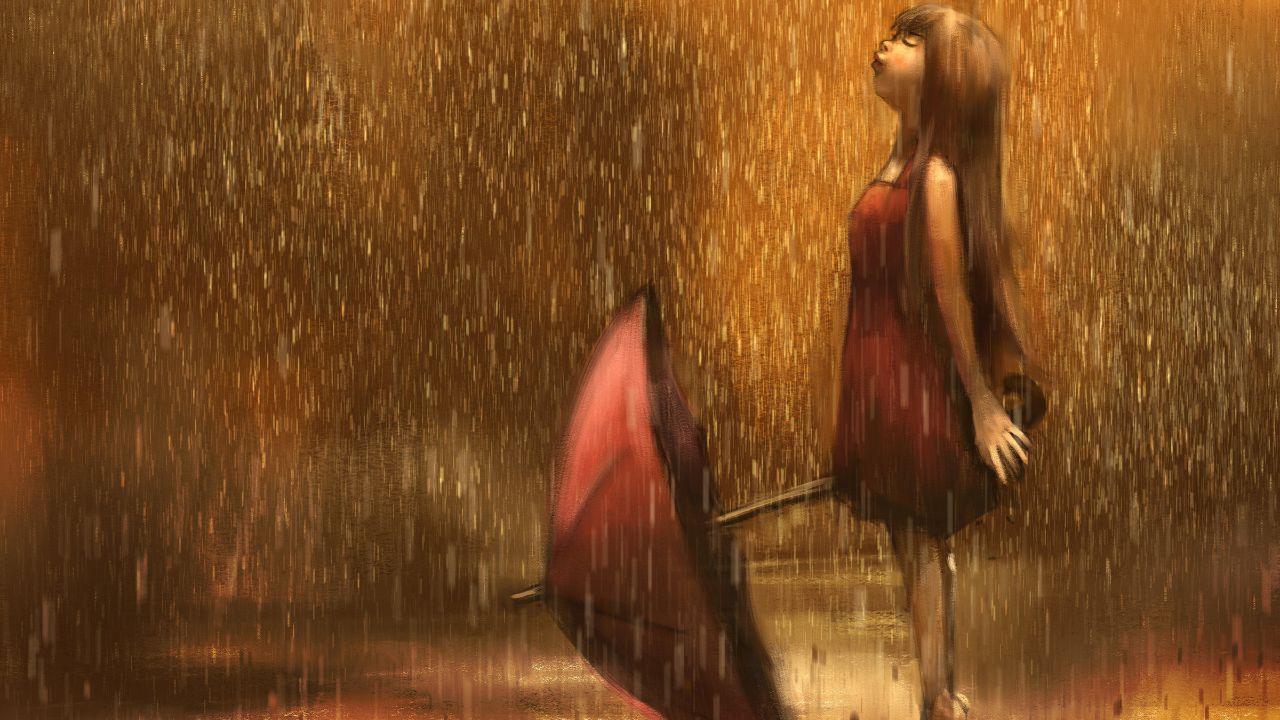It’s raining cats and dogs, hallelujah!
Editor’s note: Word nerds, assemble. While it’s raining cats and dogs and toads and snakes outside, we focus our attention on Stories of Words and Phrases, the charming new book by Sumanto Chattopadhyay, aka The English Nut. In it, he walks us through the history, usage, and etymology of dozens of everyday words and phrases we use without a second thought. He digs deep, with typical flair and wit, to trace these stories. Stories of Words and Phrases by Sumanto Chattopadhyay has been excerpted with permission from Rupa Publications.
The monsoons have hit the city. It’s raining cats and dogs! No, don’t worry, there are no animals falling from the sky! Just lots of water. This amusing idiomatic expression implies it’s raining heavily.
Frogs and fish swept up by air columns over water bodies are flung into the air and come down with the pull of gravity. There has never been any report, however, of cats and dogs ‘raining down’ in this manner. Therefore, the idiom does not stem from this phenomenon.
What then is the etymology of this curious phrase?
An email titled ‘Life in the 1500s’ circulated on the internet in the year 1999. An extract from the email offers a plausible explanation:
I’ll describe their houses a little. You’ve heard of thatch roofs, well that’s all they were. Thick straw, piled high, with no wood underneath. They were the only place for the little animals to get warm. So all the pets; dogs, cats and other small animals, mice, rats, bugs, all lived in the roof. When it rained it became slippery so sometimes the animals would slip and fall off the roof. Thus the saying, “it’s raining cats and dogs.”
Although it made for an entertaining read, it’s an example of folk etymology; it has no truth to it.
So where can the origins of this phrase about feline and canine precipitation actually be traced to?
The Irish writer Jonathan Swift seems to be the first to use it in print. It’s there in his 1738 book titled A Complete Collection of Genteel and Ingenious Conversation: ‘I know Sir John will go, though he was sure it would rain cats and dogs.’
Most of us are familiar with Johnathan Swift through his book Gulliver’s Travels. In that book he visits various places inhabited by unusual people and creatures. The most well-known of these adventures takes place on an island called Lilliput, where the people are less than six inches tall. We read this tale as children but it’s a satire on human nature, intended for adult readers.
Though Swift’s is the first use of the phrase on record, we do not know whether it was he who coined ‘raining cats and dogs’. Possibly not.
In 1653, the English dramatist Richard Brome published a comedy called The City Wit or The Woman Wears the Breeches. It talks about stormy weather using the line ‘It shall raine ... Dogs and Polecats’.
While this writer mentions polecats in place of cats, linguistically the two phrases are similar enough for us to assume that this could have been the precursor to Swift’s version.
We may try to come up with logic for why heavy rain is described as a shower of cats and dogs, but maybe it’s just a nonsensical idiom people came up with for fun. After all, English people also say ‘it’s raining pitchforks’, ‘it’s raining hammer handles’ and ‘it’s raining stair-rods’ when talking about inclement weather. And if you look at other languages, the expressions for heavy rain become even more interesting.
In French, people sometimes say il pleut comme vache qui pisse. That literally means ‘it’s raining like a peeing cow’. In Bengali, it is mushaldhare brishti porchhe. This phrase means ‘the rain is coming down like pestles’. One imagines it is inspired by the force with which the pestle strikes the mortar repeatedly when grinding spices. Or maybe the big fat raindrops are the size of pestles! Ouch.
In Spanish, they say llueven sapos y culebras. That means ‘it’s raining toads and snakes’. And in Colombia, they say están lloviendo maridos, which means ‘it’s raining husbands’! Perhaps the song ‘It’s Raining Men’ by The Weather Girls was inspired by this idiom?
And finally, there is this Norwegian expression: det regner trollkjerringer. It means ‘it’s raining she-trolls’.
A she-troll is a female troll. But this is not a reference to the modern-day internet troll—someone who posts offensive comments online to get attention, upset people or cause trouble. The original trolls come from Scandinavian folklore. They were humanoid creatures who were unhelpful, if not dangerous, to humans. A fitting namesake of the internet trolls of today!
Coming back to ‘raining cats and dogs’—which might now sound mundane in comparison to some of the more colourful expressions in the other languages—here’s how you can use this idiom in sentences:
‘They’ve suspended play on the outdoor tennis courts because it’s raining cats and dogs.’
‘It’s raining cats and dogs out there so I’ve decided to work from home.’
‘It rained cats and dogs all night so the roads are bound to be flooded.’
‘I wear a raincoat and carry an umbrella when it rains cats and dogs.’


 souk picks
souk picks